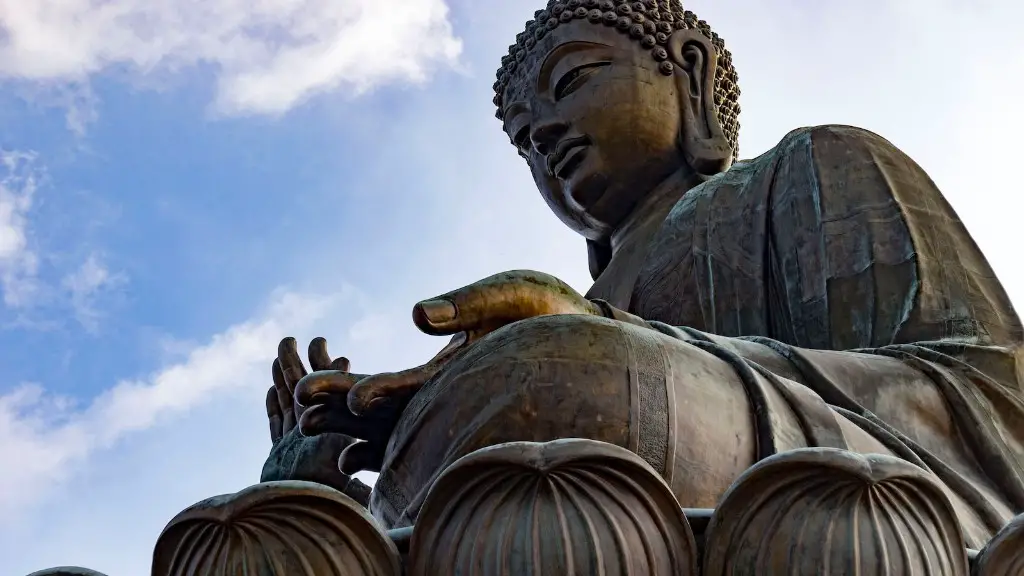Origins of Hinduism
Hinduism is one of the oldest religions in the world and has been around for over 6,000 years. It is an ancient Indian religion, predating recorded history. It is believed to be one of the oldest religious traditions in the world. Hinduism is the predominant and indigenous religious tradition of the Indian Subcontinent, known to followers as Sanātana Dharma, “the eternal law”. This ancient tradition has been passed down, evolved, and developed over thousands of years. It encompasses a wide variety of beliefs and practices, such as the belief in karma, the existence of multiple deities, and a strong emphasis on having a correct spiritual lifestyle.
Tenets of Hinduism
Hinduism is a complex and multifaceted religion and its teachings can be boiled down to four core tenets: Dharma, Karma, Jiva, and Moksha. Dharma is the moral law that governs Hindu society and is essential to daily life. In Hinduism, people are expected to live their lives according to the teachings of Dharma, which encourage them to act virtuously and make wise decisions. Karma is the concept of cause and effect, faith that all of our actions in this life can have consequences in the next life. Jiva is the concept of the individual self – it is the individual soul that is reborn into the world from one lifetime to the next. Finally, Moksha is the ultimate goal of the Hindu – to achieve liberation from the cycle of rebirth and merge with the divine.
Dharma
Dharma is the moral law that governs Hindu society and is essential to daily life. In Hinduism, people are expected to live their lives according to the teachings of Dharma, which encourage them to act virtuously and make wise decisions. Dharma also encourages people to take responsibility for their actions. It emphasizes the importance of living in harmony with the world, by respecting all living creatures and maintaining a natural balance. Dharma is a complex concept, which encompasses artwork, literature, religious doctrines, beliefs, and culture.
Karma
Karma is the concept of cause and effect – faith that all of our actions in this life can have consequences in the next. This means that every action you take can be seen as a form of energy, and that energy can manifest itself in the form of either positive or negative consequences. Good deeds and positive energy will reap positive rewards, while bad deeds and negative energy will have negative repercussions. This cycle of cause and effect will continue until a person is able to break free from the cycle of birth and death and achieve liberation from the cycle of karma.
Jiva
Jiva is the concept of the individual self – it is the individual soul that is reborn into the world from one lifetime to the next. Hinduism believes that there is an eternal essence within all beings, called the Atman. This essence is a spark of divine energy that transcends all lifetimes, moving from one life to the next. Hinduism teaches that the goal of each person is to recognize and embrace their Atman, to live in harmony and balance with their natural environment and other beings, and to strive for spiritual growth and development.
Moksha
Moksha is the ultimate goal of the Hindu – to achieve liberation from the cycle of rebirth and merge with the divine. This liberation is the highest state of spiritual and personal achievement, freeing a person from the suffering and pain of the material world and allowing them to embrace their true eternal nature. In Hinduism, this goal can be achieved by following the path of dharma and engaging in virtuous actions and cultivating a strong spiritual practice.
Hinduism and Other Religions
Hinduism is a tolerant religion and respects the beliefs of other faith traditions. Hinduism does not attempt to convert people to its teachings, instead it encourages people to explore and discover the spiritual path that works best for them. Hinduism also recognizes the spiritual truths found in the world’s other great religious traditions and sees them as valid and necessary paths to the divine.
Hinduism and Nature
Hinduism also has a strong link to nature and environmentalism. Hinduism believes that we are all connected to the divine, to each other, and to the natural world we all inhabit. By taking care of the environment, Hindus are showing respect for the divine and for all sentient beings. Hinduism also encourages people to be mindful of the consequences of their actions and to strive for harmony in all aspects of life.
Hinduism and Science
Hinduism also has an important connection to science. Hinduism believes in the use of scientific principles to better understand the nature of the universe and the divine, and to develop ethical and sustainable practices. Hinduism teaches that the true nature of reality can only be discovered through scientific investigation and research. Hindu philosophers have written extensively on the connection between scientific understanding and spiritual exploration and emphasized the idea that knowledge and truth will only be found through a deep and committed exploration of the unknown.
Hinduism and Art
Hinduism also has an important relationship to art. Through art, Hindus can express and explore their spiritual beliefs and connect with the divine. Hindu art often includes visuals of gods and goddesses, symbols of spiritual significance, and scenes from Hindu mythology. Hindus also view the production of art as a way to show respect for the divine and to express their devotion.
Hinduism and Philosophy
Hinduism is known for its complex and varied philosophical systems, which explore the nature of reality, the metaphysical, and the spiritual. Hindu philosophers have used reason and logic to explore the world and its inhabitants and have produced numerous philosophical schools and systems including Vedanta, Yoga, and Samkhya. Hinduism is also well known for its rational and often non-dogmatic approach to spiritual exploration, which encourages personal experience and exploration of the unknown.
Conclusion
Hinduism is an ancient and complex religion that has been around for more than 6,000 years. It encompasses a wide variety of beliefs and practices, as well as four core tenets: Dharma, Karma, Jiva, and Moksha. Hinduism also has strong links to nature, environmentalism, science, art, and philosophy. Overall, Hinduism is an incredibly rich and varied tradition, filled with the potential for exploration and discovery.


